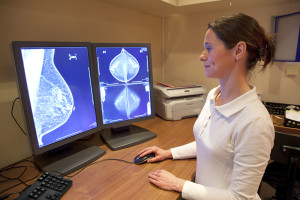
A new study shows that women who are diagnosed initially with stage IV breast cancer are now surviving six months longer than they were 20 years ago.
The study, published in JAMA Surgery, links the longer survival time to women having breast surgery after their initial diagnosis.
Researchers reviewed data on more than 21,300 metastatic patients—those whose cancer has spread outside of the breast—from the Surveillance, Epidemiology, and End Results program of the National Cancer Institute. They found that median survival for the period 1988-91 to the period 2007-11 increased from 20 months to 26 months.
But according to Jayne Paulson, MD, a surgeon with the Spectrum Health Cancer Center’s Breast Care Program, the study does not mean doctors should advise all women with stage IV breast cancer to have surgery.
“This study supports that surgery is an option for a select subset of patients with advanced breast cancer,” she said. “This doesn’t prove that all patients should have surgery. It’s always a decision of quantity and quality of life.”
While the study seems to show a correlation between surgery and survival rates, it calls for more studies that are better controlled for other factors, Dr. Paulson said.
“It’s a good stepping stone for further trials,” she said.
Dr. Paulson said she continues to approach each patient as an individual, considering surgery as one possible course of action.
“Research many times shows conflicting results,” Dr. Paulson said. “All studies have to be evaluated for method and content. Then we see how it’s applicable to the patients we care for, and still remember that treatment must be individualized.”
Education is important for patients with metastatic breast cancer, who often want surgery, she said. She will guide them through a decision-making process based on their individual case.
Thanks to advances in education and screening procedures, Dr. Paulson said, the number of patients she sees initially presenting with stage IV breast cancer is very low. This differs from patients who have metastatic disease that develops after undergoing treatment.
She urges all women older than 40 to have annual mammograms, which she called the “gold standard” of detection. High-risk patients should start even earlier.
 /a>
/a>
 /a>
/a>
 /a>
/a>